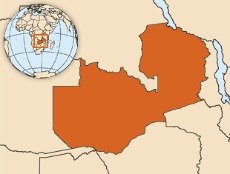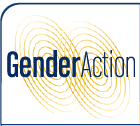  PROGRAMS & THEMES: Gender, IFIs and the Global Food Crisis
 Case Study:
Zambia
Download the case study (pdf, 206kb)
Gender Action's new Gender, IFIs and Food Insecurity Case Study: Zambia, examines the extent to which the International Financial Institutions (IFIs) fulfill their commitment to address gender inequalities and reduce malnutrition --issues that disproportionately affects Zambian women and children. Since the 1980s, IFIs, including the World Bank, have contributed to Zambia's food insecurity by pushing the government to adopt agriculture trade liberalization, privatization of agriculture enterprises and services, and removal of government fertilizer subsidies and price controls. These measures have reduced incomes of Zambian subsistence farmers, the majority of whom are women.
This case study applies Gender Action's Essential Gender Checklist to World Bank and African Development Bank (AfDB) agriculture projects in Zambia to assess the extent to which the IFIs fulfills their commitment to address gender issues, promote gender equality, and reduce malnutrition. The case study demonstrates that overall, both the World Bank and AfDB do not approach food security from a women's or human rights perspective. Neither addresses gender inequality in Zambian agriculture nor adequately measure women's project participation, access to project benefits, and projects' differential impacts on men and women, boys and girls.
To ensure that IFI agriculture investments improve this track record, Gender Action recommendations include that IFIs: provide grants, not loans, to support gender-sensitive agricultural development; ensure that all projects collect sex-disaggregated data to consistently measure projects' differential gender impacts; explicitly promote women's full and equal participation in food security and agricultural investments; and end privatization of agricultural enterprises and services that harmfully impact poor women and increase household malnutrition.
|
